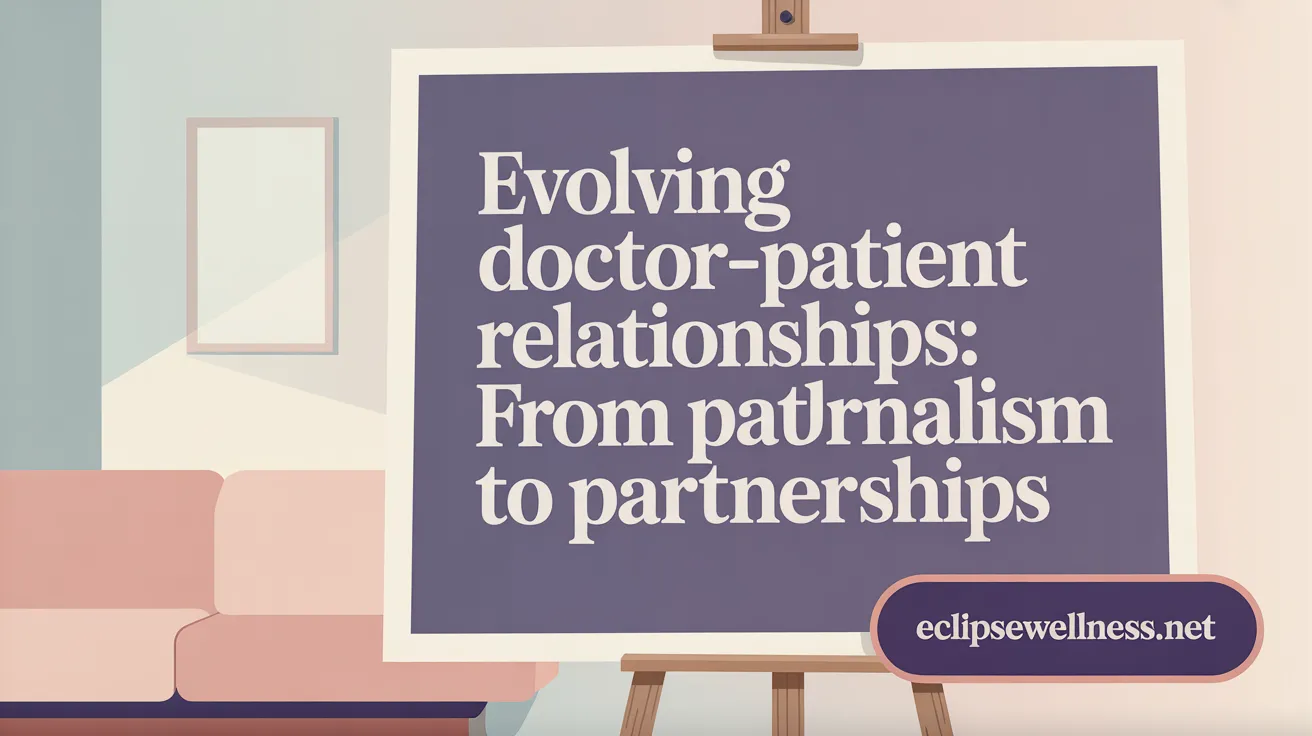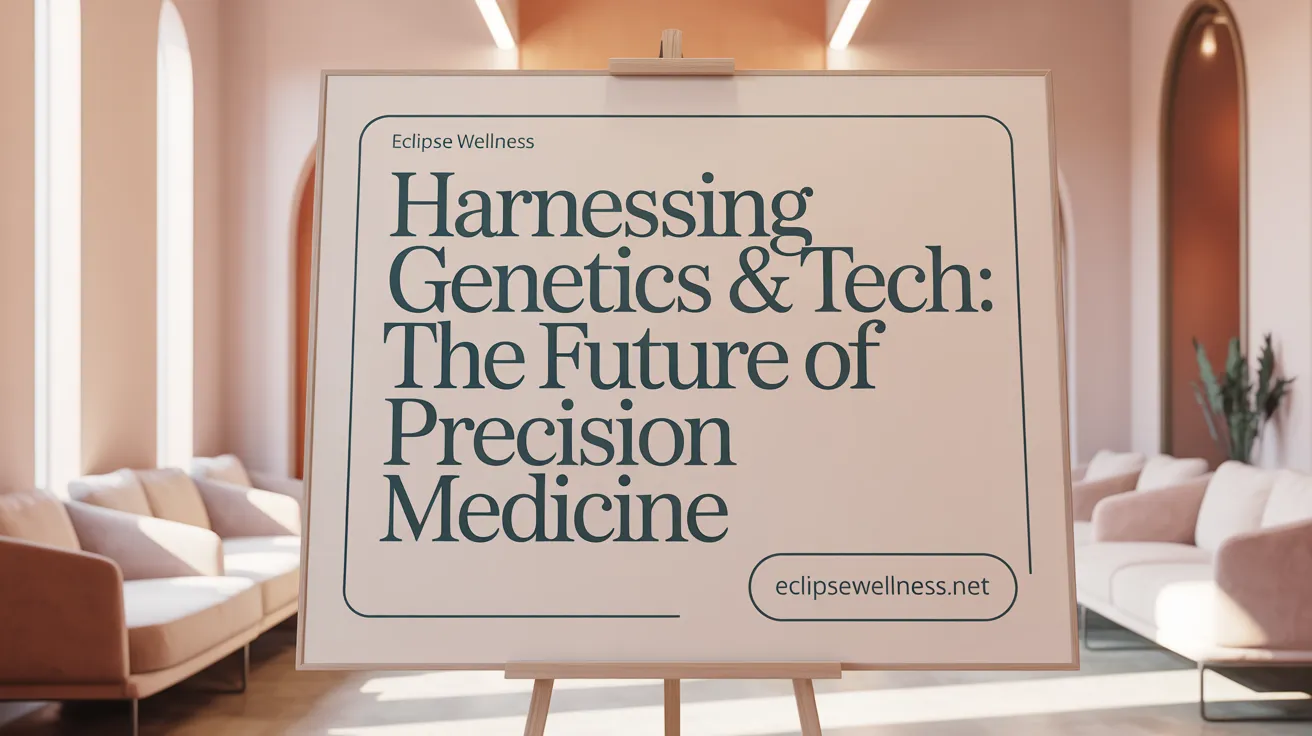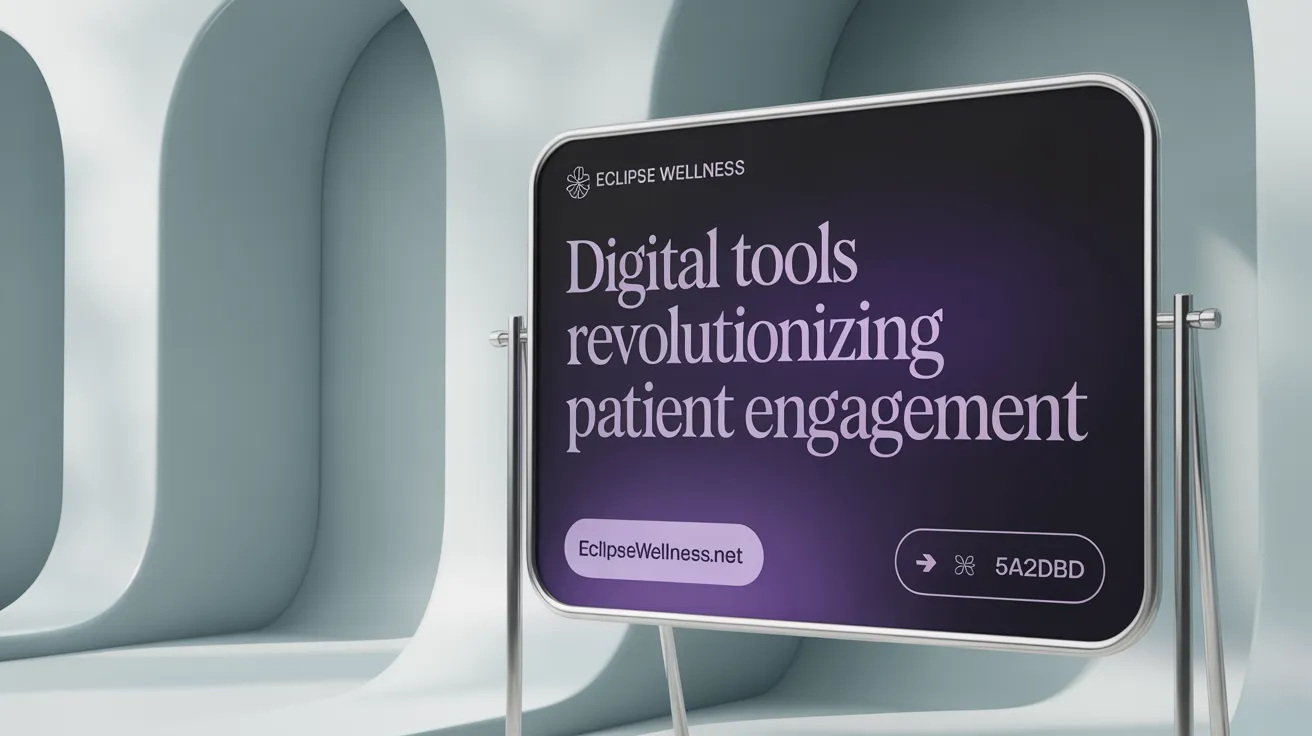Why Personalized Healthcare Matters Today
Personalized healthcare is revolutionizing the way patients engage with their treatment, moving away from generic, one-size-fits-all models toward tailored strategies that consider individual genetics, lifestyle, and preferences. This shift not only enhances patient empowerment but also improves clinical outcomes, patient satisfaction, and long-term health management. As healthcare providers integrate advanced technologies, culturally-sensitive interventions, and collaborative care models, patients gain greater control and confidence in managing their health daily.
The Essence of Personalized Health Care: Collaboration and Early Intervention
What is personalized healthcare?
Personalized healthcare involves creating individualized health plans using comprehensive risk assessments, including genetic, lifestyle, and environmental factors. It fosters a collaborative partnership between patients and providers to proactively manage health and prevent disease progression, especially chronic conditions, through early intervention and tailored wellness strategies (Personalized health care overview, Personalized Health Planning, Personalized healthcare).
Collaborative patient-provider relationship
At the heart of personalized health care is a shift from traditional doctor-centered care to a partnership model. Patients actively engage in their health decisions while clinicians utilize diagnostic tools and genetic insights to assess risks. This shared approach enables the co-creation of personalized health plans, supporting self-management and improving outcomes (Patient empowerment in healthcare, Personalized Health Planning, therapeutic alliance in healthcare, therapeutic alliance in healthcare).
Importance of early intervention
Personalized care emphasizes intervening early, often before symptoms appear, to halt or slow disease progression. Chronic disease development is complex, involving inherited susceptibilities and environmental factors, making timely prevention essential (Personalized health care overview, Personalized Health Care Principles, Patient Empowerment in Cardiovascular Care). Early personalized interventions reduce the severity of conditions such as diabetes and cardiovascular disease (Patient Empowerment in Cardiovascular Care.
Chronic disease management and proactive wellness focus
Managing chronic illnesses with personalized strategies supports behaviors like medication adherence, nutrition, physical activity, and stress reduction. Moving healthcare from reactive treatment toward a proactive, wellness-focused model helps reduce complications, improve quality of life, and lower long-term care costs (Personalized Health Care Principles, Personalized healthcare, patient empowerment in healthcare).
Empowering Patients Through Activation and Engagement

What is the patient activation cycle?
Patient activation is a continuous cycle encompassing knowledge acquisition, building confidence, and self-determination to manage one's health effectively. This cyclical process of patient activation and empowerment encourages patients to progressively participate in their healthcare decisions.
How do knowledge and confidence influence self-care?
Informed patients gain a better understanding of their health conditions, which fosters confidence in managing symptoms and treatment routines. This empowerment leads to improved medication adherence, lifestyle adjustments, and proactive health monitoring, especially vital in chronic disease management.
What role does shared decision-making play?
Shared decision-making creates a collaborative partnership between patients and healthcare providers, ensuring care plans align with individual values and goals. It enhances patient engagement and satisfaction by involving them actively in selecting treatment options.
How do digital tools contribute?
Digital health tools, including patient portals and mobile health apps, provide patients with easy access to their medical records, educational resources, and communication channels with providers. These technologies support real-time monitoring, personalized feedback, and reminders that bolster adherence and informed decision-making.
What is the impact on chronic disease management?
Patients empowered through activation and engagement experience better management of chronic diseases like diabetes and cardiovascular conditions. Personalized plans and continuous digital support enable early intervention, reduce complications, and improve overall health outcomes.
How does personalized medicine empower patients?
Personalized medicine empowers patients by enhancing their knowledge, confidence, and self-determination in managing health. Through shared decision-making and access to digital tools like patient portals and health apps, patients are activated to participate actively in their care, leading to improved adherence, satisfaction, and better chronic disease outcomes.
The Evolution of Patient-Provider Relationships in Personalized Care

How has the doctor-patient relationship evolved with personalized healthcare?
Personalized healthcare has transformed the traditional doctor-patient relationship from a paternalistic model, where doctors made unilateral decisions, to a collaborative partnership. This evolution is largely driven by patients gaining easier access to medical information through the internet and patient knowledge and digital technologies like smartphones in health monitoring and AI-powered tools. These resources empower patients to engage more actively in their care decisions and to understand their health conditions better.
The surge in patient agency means individuals now act as co-managers of their health, contributing knowledge and preferences to therapeutic plans. Communication has become more dynamic, moving beyond the physician-dominated dialogues to an interactive exchange that respects patient values and goals and fosters the crucial therapeutic alliance in healthcare.
An illustrative example of this shift is patient-driven innovation, such as projects like OpenAPS patient-driven innovation where patients develop their own medical devices and solutions independently. This bypasses slow traditional regulatory pathways and highlights the growing influence of empowered patients within healthcare.
Overall, technology has been a critical enabler in fostering patient empowerment in healthcare and redefining the healthcare partnership to one centered on shared decision-making and mutual respect, strengthening the therapeutic alliance in healthcare.
Integrating Genetics and Technology for Precision Treatment

What role does genetics play in personalized medicine?
Genetics is fundamental to personalized medicine, offering detailed molecular insights that enable more precise health interventions. By analyzing an individual's unique genetic makeup, healthcare providers can predict susceptibility to diseases and tailor treatments specifically for each patient. This personalized approach shifts healthcare from a traditional one-size-fits-all model to targeted therapies that enhance effectiveness and minimize side effects.
Role of genomics and pharmacogenomics
Genomics explores the entire set of an individual's genes, while pharmacogenomics focuses specifically on how genes affect drug response. Together, these fields guide the optimal selection and dosing of medications. For example, pharmacogenomic testing can identify variations that impact drug metabolism, like those influencing warfarin or antidepressants, reducing adverse reactions and boosting treatment success (Precision medicine clinical trials, Genetic profile and personalized healthcare).
Targeted therapies and early detection
Advancements in genetic profiling have paved the way for targeted therapies, notably in oncology. Tests for genetic mutations, such as HER2 in breast cancer or BRCA mutations linked to breast and ovarian cancer risk, allow for customized immunotherapy or preventive strategies (Genetic testing and personalized medicine, Benefits of precision medicine). Early detection through molecular markers also enables interventions before clinical symptoms arise, improving prognosis and reducing healthcare costs.
Genetic testing examples
Common genetic tests include TPMT genotyping for leukemia drug dosing and CYP2C19 testing to guide blood thinner use. These tests illustrate how genetic information informs safer and more effective treatments across various conditions (Personalized Medicine, Precision medicine overview).
Technology enabling personalized diagnostics
Modern technology underpins personalized medicine by facilitating comprehensive diagnostics. Genome sequencing, RNA sequencing, and bioinformatics tools analyze genetic and molecular data, offering precise diagnosis and monitoring (Personalized medicine overview). Innovations like liquid biopsies for non-invasive tumor DNA detection and AI-driven symptom checkers enhance individualized patient assessments (Personalized Medicine in Brain Health Care, Artificial intelligence in personalized medicine).
In summary, integrating genetics and cutting-edge technology revolutionizes personalized healthcare, enabling customized prevention, diagnosis, and treatments that improve outcomes and patient safety (Personalized health care overview, Precision Medicine).
Personalized Health Planning: Operationalizing Patient-Centered Care
How does personalized health planning support patient empowerment?
Personalized health planning (PHP) actively involves patients and clinicians in developing individualized health plans. This collaborative process utilizes tools such as self-assessment via the Personal Health Inventory (PHI) and thorough clinician evaluations to capture comprehensive health data.
The core of PHP emphasizes shared goal setting between patients and providers. Such goals address not only medical needs but also personal values and lifestyle factors, ensuring care is tailored and meaningful. Ongoing care coordination supports patients in managing their health proactively.
Implementing PHP has demonstrated tangible clinical benefits. Pilot programs, particularly within integrated care systems, showed improvements such as weight loss, better blood pressure regulation, and hemoglobin A1c reductions. Additionally, the planning process enhances patient empowerment in healthcare and improves the therapeutic alliance in healthcare, resulting in stronger patient-provider relationships and increased patient satisfaction by fostering deeper engagement.
In summary, personalized health planning transforms care into a patient-centered partnership. It empowers individuals to take active roles in their health through collaborative planning, informed self-assessment, and coordinated follow-up, ultimately leading to improved health outcomes and patient experience.
Culturally Sensitive and Holistic Approaches Enhance Engagement

Why are culturally sensitive and holistic approaches important in personalized healthcare?
Culturally sensitive healthcare interventions are crucial because they honor and incorporate individual patients' values, beliefs, and traditions. This respect fosters greater patient trust and engagement, encouraging active involvement in their own care and improving adherence to treatment plans (Patient empowerment through cultural sensitivity, patient empowerment in healthcare).
A comprehensive multi-level framework supports this by addressing factors at the individual, professional, community, and systemic levels. This broad approach helps reduce health disparities and promotes equitable health outcomes across diverse populations (Multi-level framework for population health improvement, Personalized healthcare).
Holistic personalized care emphasizes the integration of lifestyle choices, environmental factors, and psychological well-being alongside medical treatment. Recognizing that disease progression is influenced by genetics, behavior, and social context allows for more effective and tailored health plans (Personalized health care overview, Personalized medicine approach).
The therapeutic alliance in healthcare—a strong, collaborative relationship between patient and provider—enhances healing by building trust and positive expectations. Interestingly, the placebo effect, which arises from patients' beliefs and the therapeutic relationship, has neurobiological underpinnings that can amplify treatment benefits (Patient-provider partnerships, Holistic integrative health approaches.
Together, these culturally sensitive and holistic approaches create a supportive environment that empowers patients, improves satisfaction, and leads to better health outcomes (Patient-centered care definition, Patient empowerment importance).
Digital Innovations Driving Personalized Patient Engagement

What digital technologies support personalized patient engagement?
Digital health innovations have revolutionized personalized patient engagement by integrating technologies such as telemedicine, artificial intelligence (AI), health data analytics, and specialized digital platforms.
Telemedicine offers personalized care through live video visits tailored to individual symptoms and medical histories, providing patients with convenient access to healthcare services regardless of location. Remote care extends medical support into patients' homes, improving management especially in underserved or rural areas.
AI enhances patient engagement via symptom checkers and predictive algorithms that deliver individualized health insights. These tools analyze complex health data to customize treatment recommendations, aiding both patients and providers in making informed decisions.
Personalized digital platforms enable customization of educational content, care plans, and data visualization to match each patient's unique needs. For example, apps designed for chronic disease management offer tailored diet, exercise, and medication guidance, fostering active participation and better health outcomes.
Real-time monitoring and reminder systems, often integrated within these platforms, provide timely notifications and alerts that improve adherence to medication regimens and scheduled treatments. Such proactive communication increases patient accountability and supports long-term management.
Together, these digital tools overcome traditional barriers by delivering culturally competent, accessible, and patient-centered engagement strategies that contribute significantly to improved satisfaction and clinical effectiveness.
Empowering Patients Through Personalized Healthcare: A Sustainable Future
Personalized approaches to healthcare demonstrate that empowering patients every day enhances outcomes, satisfaction, and cost-effectiveness. Through collaborative health planning, integration of genetic insights, culturally sensitive practices, and leveraging digital innovations, healthcare providers can offer individualized care that respects unique patient needs and preferences. This transformation not only reshapes the patient-provider relationship into a partnership but also fosters greater engagement and self-management, ultimately driving a healthier population and a more responsive healthcare system.
